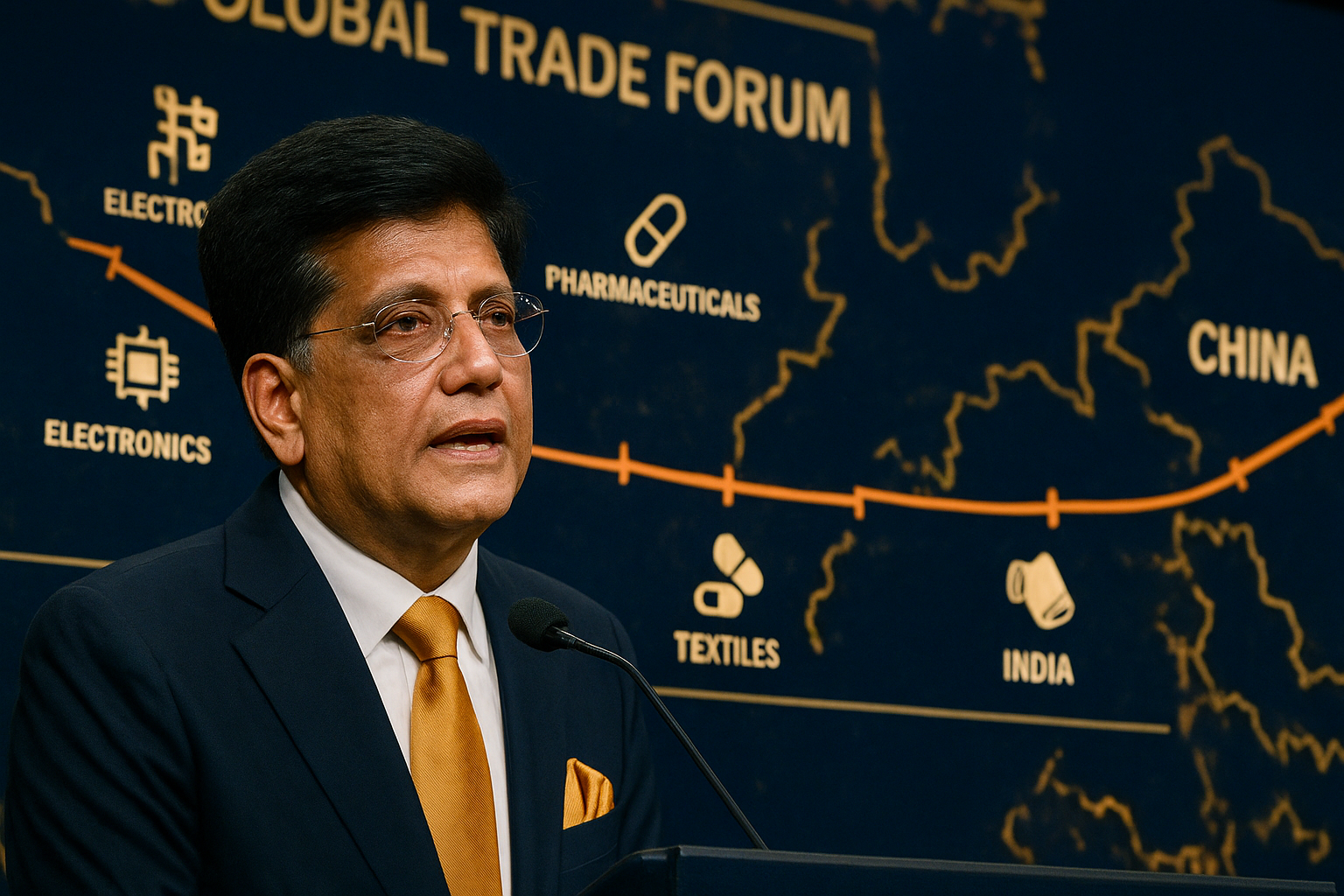Commerce Minister Piyush Goyal clarified at the ET World Leaders Forum that India’s gradual shift away from dependence on Chinese imports is a strategic and independent policy decision, not linked to ongoing trade talks with the United States. The statement underscores India’s broader strategy to strengthen domestic manufacturing, diversify supply chains, and build resilience against external shocks.
The clarification comes amid speculation that India’s trade recalibration was tied to U.S. tariff negotiations. Instead, Goyal emphasized that India’s approach is rooted in its long-term vision of becoming a self-reliant and globally competitive economy.
India’s Strategic Recalibration
India’s policy shift aims to reduce critical dependence on China, particularly in sectors like electronics, pharmaceuticals, and infrastructure inputs. Over the past few years, the government has introduced incentives under the Production-Linked Incentive (PLI) scheme, while also courting investments from alternate supply chain partners in Southeast Asia, Japan, and Europe.
According to Goyal, these steps are about building capacity at home while diversifying globally—not merely reacting to geopolitical developments.
The US Angle and Trade Speculation
With U.S. tariffs reshaping global trade flows, some observers believed India’s China diversification strategy was an offshoot of U.S. trade demands. Goyal dismissed this, clarifying that India’s trade policy is independently designed to safeguard its economic interests.
The focus remains on strengthening India’s position in global supply chains, irrespective of bilateral negotiations with Washington.
Opportunities for Indian Industry
The shift away from China presents significant opportunities for domestic industries. Sectors like electronics assembly, specialty chemicals, and textiles are expected to benefit from policy support and redirected investments.
At the same time, global firms seeking alternatives to China are increasingly turning to India as part of their China+1 strategy, strengthening FDI flows into the country.
Why This Matters
Piyush Goyal’s remarks are important in clarifying India’s trade positioning to investors, businesses, and global partners.
For Industry: Signals consistent, long-term reforms rather than reactive measures.
For Global Partners: Positions India as a reliable trade ally in shifting supply chains.
For Policy: Reinforces India’s independent approach to self-reliance and competitiveness.
This approach aligns with India’s Viksit Bharat 2047 vision, ensuring that growth is built on structural reforms, not short-term trade negotiations.












